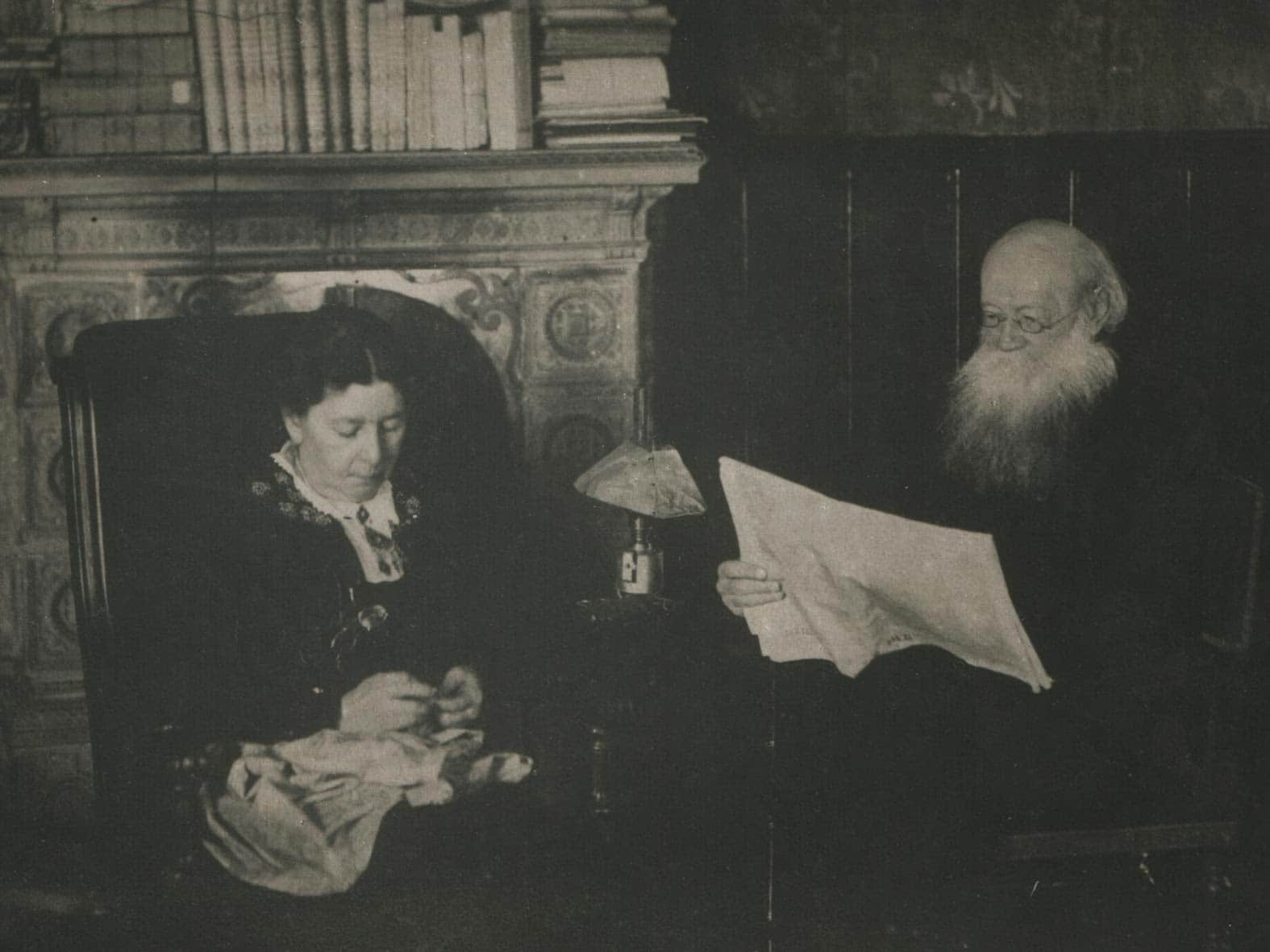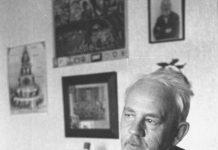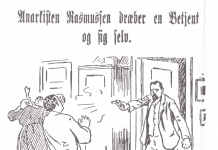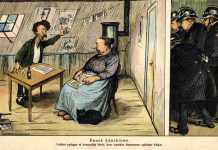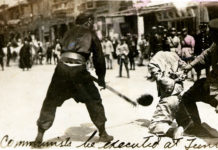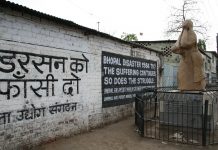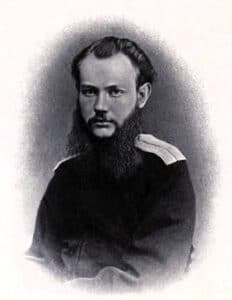
Den russiske anarkist Peter (Pjotr) Kropotkin døde 8. februar 1921 i Dmitrov, 65 km nord for Moskva. Han blev født 21. december 1842 i Moskva.
Indbold
Leksikalt
- Kropotkin, Pjotr (Leksikon.org)
- Peter (Pjotr) Kropotkin (Denstoredanske.dk)
- Peter Kropotkin (Wikipedia.org). Længere engelsk tekst med links til værker + bøger/pjecer. Også mindre dansk artikel med enkelte links.
- Fyrst Kropotkin. Af Arne Dybfest (Samtiden, 1890, s.1-8; online på Wikikilden).
- Anarchism. By Pëtr Kropotkin (Encyclopaedia Britannica, 1910; online at The Anarchist Library).
Sites
- Kropotkin, Pjotr (Sorte Fane Blog). Oversigt over tekster på dansk af og om Kropotkin + links.
- Kropotkin, Petr (Bibliografi.dk: international forfatterbibliografi). Kropotkins titler og udgaver på dansk.
- Peter Kropotkin (Anarchy Archives: An Online Research Center on the History and Theory of Anarchism). Med bibliografi, kronologi, værker, om Kropotkin + billeder.
- Peter Kropotkin (Libcom.org). Tekster af og om Kropotkin.
- Peter Kropotkin (Marxists Internet Archive; Reference Archive). Tekster af Kropotkin.
Om Kropotkin
Solidaritetsøkonomi: 100 år efter Kropotkin. Af Bjarke Friborg (Konfront, 21. januar 2021). “Gensidig hjælp, solidariske fællesskaber og kooperative samarbejdsformer er centrale elementer i det, der i dag kaldes solidaritetsøkonomi. En af de tidligste teoretikere på området er Pyotr Kropotkin, der døde for 100 år siden i dag.”
Alt er for alle. Af Det anarkistiske videns- og oplysningskollektiv (Konfront.dk, 19. marts 2020). ” Ifølge den anarkistiske tænker Peter Kropotkin, er staten dermed et politisk værktøj for tvang og undertrykkelse, og ikke til politisk forandring. Ifølge Kropotkin, bør vi droppe staten.”
Kropotkins naturalistiske etik. Af Ole Sandberg (Aktivist.nu, 2008, 36 s.; online på Akademia.edu). “Det er ikke muligt her at give en uddybende beskrivelse af evolutionsteorien og de mange diskussioner i denne. Istedet vil jeg give et overblik over den forsimplede version af darwinismen, der er årsagen til det mangeårige brud mellem naturvidenskab og moralfilosofi, og Kropotkins forsøg på at overkomme det.”
Peter Kropotkin: føderalistiske ideer (1922). Af Camillo Berneri ([Regnbuen, 1976], 32 sider; online på Scribd.com). In English: Peter Kropotkin: His Federalist Ideas (Anarchy Archives).
The coming desert (New Left Review, Issue 97, January-February 2016, p.23-43). “Mike Davis draws back the curtain on the landmark contribution of the great anarchist geographer Pyotr Kropotkin, penned from a Tsarist prison.”
The Prince of Evolution. By Eric Michael Johnson (The Anarchist Library, September 13, 2011). Interview with Dugatkin about his book, The Prince of Evolution: Adventures in Science and Politics (Createspace, 2011). See excerpt from the book at Scientific American (September 13, 2011).
Mutual Aid: An introduction and evaluation. By Iain McKay (AK Press, 2010; online på Anarchist Library). “An overview and analysis of Kropotkin’s Mutual Aid showing how it has faired against.”
A meeting between V.I. Lenin and P. A. Kropotkin. By V. D. Bonc-Brujevic (In Defence of Marxism, 28 February 2007). “In May 1919 Lenin met Kropotkin in the Kremlin. Lenin admired Kropotkin, especially for his book The Great French Revolution, but the conversation revealed how the anarchist leader was more interested in this or that cooperative being set up and had lost the general picture of where the revolution was going.” På dansk: Lenin og Kropotkin: en samtale (Sorte Fane Blog).
Se også/See also:
Kropotkin was no crackpot. By Stephen Jay Gould (Natural History, Vol.97, No.7, 1988, p.12-21; online at Marxists Internet Archive). “Kropotkin, in short, had a personal and empirical reason to look with favor upon cooperation as a natural force.”
What Marx should have said to Kropotkin. By Adam Buick (Libcom.org, September 30, 2016). “The following is the transcript of a talk given by Adam Buick to the 1994 Socialist Party of Great Britain Summer School.”
Kropotkin and the Rise of Revolutionary Anarchism, 1872-1886. By Caroline Cahm (Cambridge University Press, 1989, 375 p.; online at Libcom.org). “Cahm concentrates on the most active period of Kropotkin’s career as a revolutionary agitator, a period which began with his commitment to Bakuninist ideas in 1872 and ended with his arrival in England in 1886 …”
Kropotkin on Mutual Aid. Review by Paul Mattick (Western Socialist, January-February 1956; online at Marxists Internet Archive). “Provoked by Huxley’s belief that in nature and society the struggle for existence is one of all against all, Kropotkin demonstrated that both in the animal world and human society it is rather mutual aid which secures existence and makes for progress.”
Some reminiscences of Kropotkin. By Alexander Berkman (Anarchy Archives). “… manuscript is part of the International Institute of Social History’s Alexander Berkman Archive” (no year, 6 p. + images of manus.).
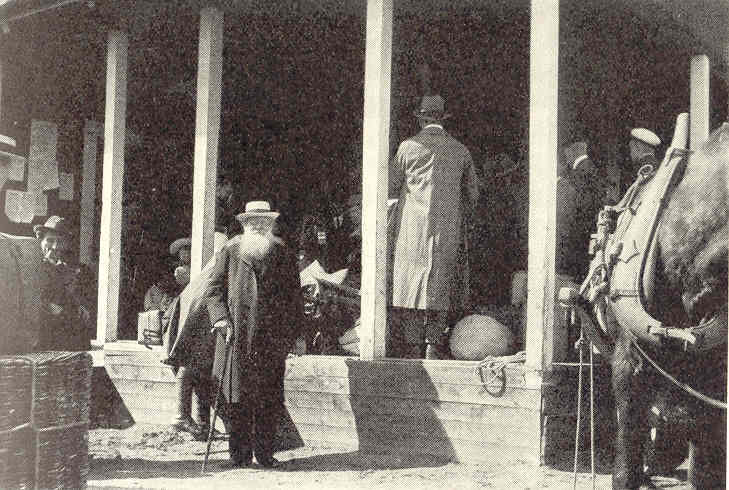
Litteratur
Anarkismens tid: en brevveksling mellem Peter Kropotkin og Georg Brandes. Red. Vagn Lyhne og Lis Norup (Det Poetiske Bureau, 2017, 418 sider)
Den anarkistiske kommunisme. Af Kropotkin og Malatesta (Århus, Agenda Tryk, 1982; online på Scribd.com): Kropotkin (side 3-16). Oversættelse af kap. 3 i The conquest of bread (1906).
En Anarkists Erindringer. Af Pjort Kropotkin. Oversat af Emmy Drachmann (1900) og med forord af Georg Brandes, side 7-12. (-i: Gyldendal, 1984, 334 sider; Gyldendals Tranebøger). Online på Projekt Runeberg. Her: Fortale af Georg Brandes, side [5-12] Se også engelske udgave: Memoirs of a Revolutionist (Anarchist Archives).
Haandens og Hjærnens Arbejde: Landbrug, Industri og Haandværk i Nutid og i Fremtid. Af Peter Kropotkin. Oversat af Emmy Drachmann (Gyldendalske Boghandel, 1904, 259 sider). Se online-udgave (Open Library)
Staten – dens historiske rolle. Af Peter Kropotkin. Oversat af Knud Erik Stavnager (Rhodos, 1981, 94 sider). Se online-udgave (Scribd.com)
Gensidig hjælp. Af Peter Kropotkin. Oversat af Emmy Drachmann (1906) (Introite!, 2002, 248 sider). Se også engelsk udgave: Mutual Aid: A Factor of Evolution (1902).
Erobringen af brødet (pdf). Af Peter Kropotkin (Bergen, Ragnvald Paulsons Forlag, 1898, 351 s.; online på Det Kongelige Bibliotek)
Se også
Linkbox: Anarkisme vs. Marxisme (Socialistisk Bibliotek)
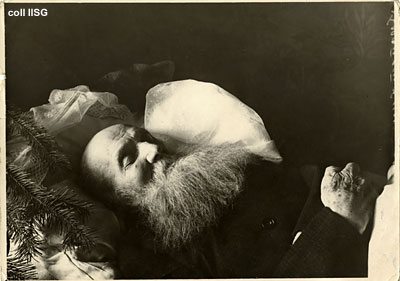
Kropotkin’s funeral: Introduction + A Dozen Photos [with quotations by Emma Goldman]
Death and funeral of Peter Kropotkin. Chapter 26 in Emma Goldman: My Disillusionment in Russia (1925) (Marxists Internet Archive). See also Chapter 17: Another Visit To Peter Kropotkin.
Video: Funeral of Peter Kropotkin-1921 (YouTube.com, 10:10 min.)
Pyotr Kropotkin’s funeral took place from 10th to 13th of February 1921, and it was documented by “Section of social chronicles of all-Russian cinema and photo publishing”.
















